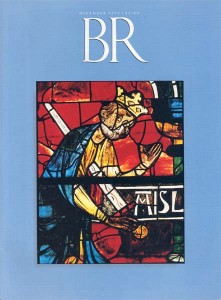The Fundamentals of Fundamentalism
Americans appear to want definitive answers, and the claim of infallibility—either for the pope or for the Bible—seems to suit that need.

While preparing for a conference on Jewish-Christian relations, I was asked by students to define Fundamentalism. I explained its five main tenets as (1) the inerrancy of the Bible, (2) the virgin birth of Jesus, (3) his performance of miracles, (4) his atonement offered to God by shedding his blood and (5) his bodily resurrection.1 My students’ response was direct and to the point: “But isn’t that what all Christians believe?”
Their reaction was telling. It shows how little impact academic theology over the past 200 years has had on popular awareness. That theology understands Christianity as something far more symbolic and collective than the Fundamentalist emphasis on individual literal belief. My students’ reaction suggests that the “take” on Christianity in America is along Fundamentalist lines.
Fundamentals came to be asserted in both Protestantism and Catholicism in response to two basic challenges that were first voiced during the 19th century and continue to be influential today.
Already a library member? Log in here.
Institution user? Log in with your IP address.

